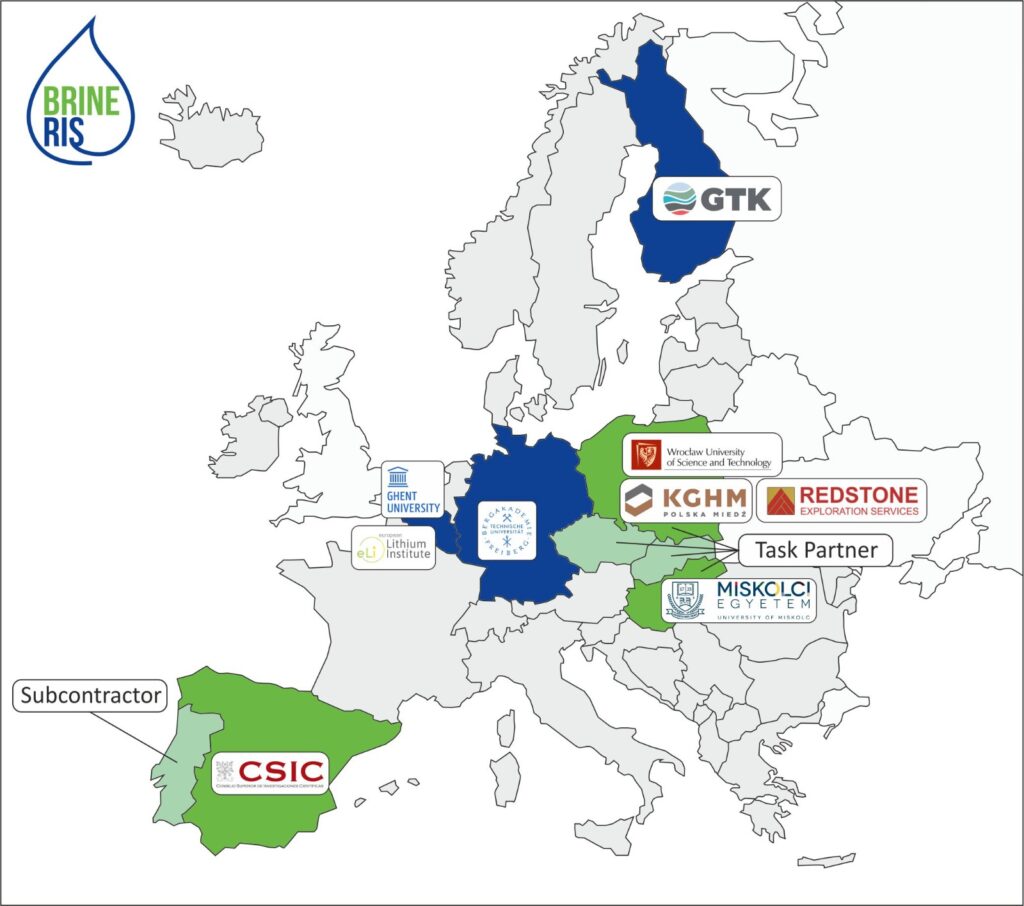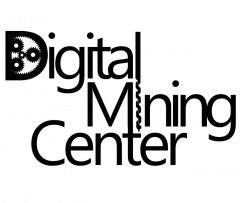Limited access to critical raw materials (CRM) is the main obstacle to developing the high-tech and battery sectors. However, thanks to the striking development of efficient soluble elements recovery technologies, highly mineralised water (brine) is a potential unconventional source of metals. Usually occurring at great depths, under conditions of high pressure and hot temperatures, brines mineralised up to 300-350 g/L may contain economic concentrations of metallic elements, such as CRM from the EU 2021 list (Li, Mg, Sr), Na, Ba and others. Therefore, exploring non-obvious metals resources (such as geothermal brines) and innovative metals recovery technologies is necessary to ensure a sustainable and secure European supply of battery metals. It also supports European Raw Materials Alliance (ERMA) vision “to secure access to critical and strategic raw materials, advanced materials, and processing know-how for EU Industrial Ecosystems”.
The technology needed to recover metallic elements from brines is under development in several KAVA projects, e.g., EuGeLi or Morecovery. However, the location of brines with reliable and stable sources of metals is still an open question. Our BrineRIS project will locate brines in Europe suitable for economically feasible metal recovery and test the emerging recovery technologies in the lab. Focusing on RIS countries of the Iberian Peninsula and Visegrad Group, whose thermal brines resources are proven, the BrineRIS project will deliver verified information on brines enriched in Li and other valuable elements. Special attention will be paid to existing mine water inflows and operating geothermal wells.
BrineRIS intends to achieve three key objectives:
(I) To increase awareness of geothermal brines metallogenic potential in RIS countries by mapping brines resources and estimating the abundance of CRM and other valuable elements with specific attention to lithium. This activity will cover six RIS countries – Poland, Hungary, Czech Republic, Slovakia, Spain and Portugal.
(II) To build the capacity of RIS countries in low-carbon metals mining technologies related to geothermal brines by sharing experience in developing innovative recovery solutions and knowledge exchange with key players in geothermal recovery from non-RIS countries. Through the education and training of students and specialists from RIS countries, BrineRIS will increase the competitiveness and innovativeness of the RIS workforce. These activities will be directed to partners’ countries and stakeholders also from other RIS regions (Baltic, Balkans, Ukraine), offering them free participation to widen the Project’s impact.
(III) To attract investors to RIS countries by developing an interactive platform of potential geothermal brines projects and preparing at least one investment case for the ERMA. That way, we increase the Project’s geographical coverage to worldwide stakeholders. This aim will be supported by close cooperation with the Business Advisory Board (BAB).
Nine partners from six countries representing five CLCs and the three sides of the Knowledge Triangle are involved in our consortium. A diverse consortium composed of RIS and non-RIS partners is focused on knowledge transfer from non-RIS partners to RIS countries and on building the geothermal lithium resources capacity in the ESEE region (Visegrad Group) and the Iberian Peninsula.
BrineRIS is led by Wrocław University of Science and Technology (WUST) (Poland) and partnered by The Spanish National Research Council (CSIC) (Spain), University of Miskolc (UM) (Hungary), Ghent University (UGent) (Belgium), Technical University Bergakademie Freiberg (TUBAF) (Germany), The European Lithium Institute (eLi) (Belgium/Germany), Geological Survey of Finland (GTK) (Finland), Redstone Exploration Services Sp. z o.o. (RED) (Poland), KGHM Polska Miedz S. A. (KGHM) (Poland).
| Duration | 1.01.2022-31.12.2024 |
| Members | Wrocław University of Science and Technology (WUST) (Poland) Spanish National Research Council (CSIC) (Spain) University of Miskolc (UM) (Hungary) Ghent University (UGent) (Belgium) Technical University Bergakademie Freiberg (TUBAF) (Germany) The European Lithium Institute (eLi) (Belgium/Germany) Geological Survey of Finland (GTK) (Finland) Redstone Exploration Services Sp. z o.o. (RED) (Poland) KGHM Polska Miedz S. A. (KGHM) (Poland) |
| Budget | 1 700 000 EUR |
| Funding | EIT Raw Materials |

BrineRIS KAVA project looks for RIS Task Partners from Poland, Czech Republic, Slovakia and Hungary
We invite interested organizations originating from Poland, Czech Republic, Slovakia, and Hungary to apply for the position of Task Partner in BrineRIS KAVA project (EIT RawMaterials). Selected RIS Task Partners are expected to implement project tasks within all the Work Packages WP01 – 09, in particular as listed below, in countries of their origin and in the period May 2022 – December 2024:
• Provide knowledge and expertise on local regulations and legislation, local policy, economic analysis.
• Provide archival data and geoinformation on brines(among others: geological and hydrogeological data on brines, mining properties inventory data etc., databases and datasets) from Poland or Czech Republic or Slovakia or Hungary
• Manage raw materials sampling, sample handling, and processing in the BrineRIS Project in Poland or Czech Republic or Slovakia or Hungary.
• Provide accredited measurement and analysis for locally taken raw materials samples for use in the BrineRIS Project.
• Provide access to specific local raw materials sites/test sites or materials/processes and enable them for usage and sampling in the BrineRIS Project.
• Actively participate in Network and Capacity Building Events and assist in the engagement of stakeholders from the country of origin
• Participate in Communication and Dissemination Activities of the Project
• Provide expertise and support in business evaluation of the investment cases (applies to Task Partner from Hungary)
All details are explained in the Call document
The Application must be submitted via https://webportalapp.com/sp/ris_taskpartnerselection_2022, by May 5th, 2022, 17:00 CET.

